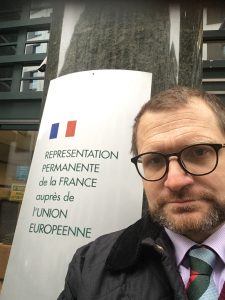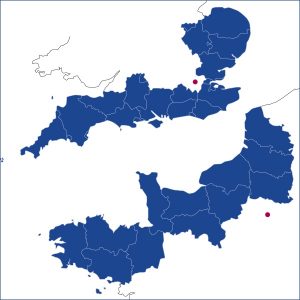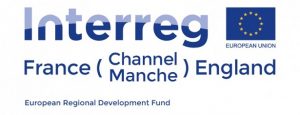Martine Hardwick, Lecturer in Law and PhD Candidate in the Department of Humanities and Law, has published a timely commentary in the Bournemouth University Law Review looking ahead to a change in the law on 31 December 2019. On this date, opposite sex couples will finally be able to register their civil partnerships – which until now has been reserved for same sex couples.

However, this change in the law raises important questions for cohabiting couples. Despite longing for more protection and fairness from the law, co-habiting couples will not be presented with the opportunity as heterosexual couples to celebrate on New Year’s Eve. Instead, they will still be bound by the strict rules of formation and dissolution which mirror those of marriage.
Questioning whether the UK has missed an opportunity to provide more rights for cohabiting couples and highlighting a solution drawn from France in the form of Pacte Civil de Solidarité (PACS), Martine argues that learning lessons from the French legal system has to be the way forward in giving cohabitants protection while respecting their autonomy.


 Other changes include new pages for both Micro-Projects and Regular Projects, with the application processes now clearly laid out in a step-by-step guide. Layout of the Programme’s specific objectives also has been improved and created a dedicated page for new Targeted Projects initiative.
Other changes include new pages for both Micro-Projects and Regular Projects, with the application processes now clearly laid out in a step-by-step guide. Layout of the Programme’s specific objectives also has been improved and created a dedicated page for new Targeted Projects initiative.













 Dr. Ashraf cited on ‘Modest Fashion’ in The Guardian
Dr. Ashraf cited on ‘Modest Fashion’ in The Guardian NIHR-funded research launches website
NIHR-funded research launches website Academics write for newspaper in Nepal
Academics write for newspaper in Nepal New paper published on disability in women & girls
New paper published on disability in women & girls Global Consortium for Public Health Research 2025
Global Consortium for Public Health Research 2025 MSCA Postdoctoral Fellowships 2025 Call
MSCA Postdoctoral Fellowships 2025 Call ERC Advanced Grant 2025 Webinar
ERC Advanced Grant 2025 Webinar Horizon Europe Work Programme 2025 Published
Horizon Europe Work Programme 2025 Published Horizon Europe 2025 Work Programme pre-Published
Horizon Europe 2025 Work Programme pre-Published Update on UKRO services
Update on UKRO services European research project exploring use of ‘virtual twins’ to better manage metabolic associated fatty liver disease
European research project exploring use of ‘virtual twins’ to better manage metabolic associated fatty liver disease